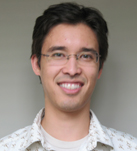
Andrew Ko
Contributions to this post were provided by Andrew Ko, University of Washington.
Andrew J. Ko is an Associate Professor at the University of Washington Information School and an Adjunct Associate Professor in Computer Science and Engineering. His research focuses on interactions between people and code, spanning the areas of human-computer interaction, software engineering, and more recently computing education.
Ko maintains a blog called Bits and Behavior in which he muses “about software and the world’s attempt to understand it.” A recent blog post, however, was a little more personal and talked about his transition from studying developer tools and productivity to “shaping how developers (and developers-in-training) learn and shape their behavior.” The post My sabbatical research pivot has spurred some thought in the community.
How do you make the transition to computing education? How do you jump right into computing education research out of graduate school and still get a job at a research university? How do we make computing education research bigger, more mature, and most importantly more prestigious?
These are all questions that Ko and others in the computing education field are struggling to answer. Recently, the Computing Community Consortium (CCC) released a white paper to the community on The Importance of Computing Education Research, co-authored by Steve Cooper, Jeff Forbes, Armando Fox, Susanne Hambrusch, Andrew Ko, and Beth Simon. The whitepaper recognizes the increase in the number of undergraduates declaring a computing major and suggests that right now we have an unparalleled opportunity to expand the reach of computing education through the burgeoning field of Computing Education Research (CER).
From the white paper:
Creating an environment in which computing education research flourishes and also applies to teaching practice is a long-term endeavor. Public interest in K-12 computing education has increased in recent years and many CS departments have new interests in improving the quality of undergraduate education and student retention, especially retention of members of underrepresented groups through evidence-based practices. The growing public interest, combined with the availability of computing education research funding, creates a unique environment for departments to consider CER as a respected research area.
Why CS Departments Should Embrace CS Education Research will be a parallel track discussion on Monday afternoon at the 2016 Computing Research Association (CRA) Conference at Snowbird. It will be chaired and moderated by Ran Libeskind-Hadas, Harvey Mudd College. The speakers are Diana Franklin, University of Chicago, Mark Guzdial, Georgia Tech, Scott Klemmer, UC San Diego, Andy Ko, University of Washington, and Ben Shapiro, University of Colorado-Boulder. If you are coming to Snowbird, make sure to attend!









